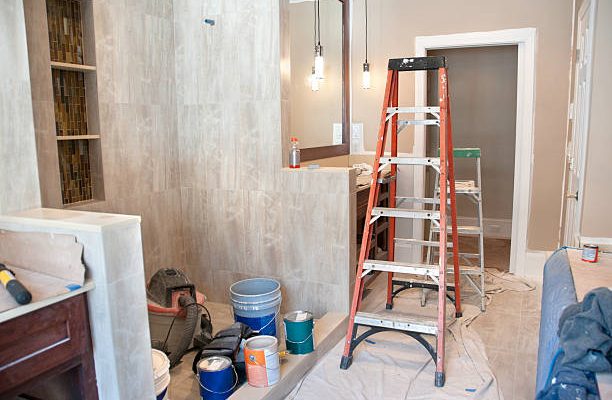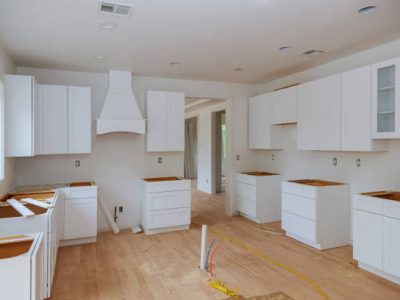Embarking on a home renovation journey is both exhilarating and daunting. The thrill of transforming a space, the anticipation of the final result, and the joy of personalising every nook and cranny are unparalleled.
However, with this excitement comes a plethora of challenges that can turn your dream project into a nightmare. The key to a successful renovation lies not just in a vision but in meticulous preparation and a deep understanding of potential pitfalls.
This article aims to shed light on some of the most common mistakes homeowners make and provides guidance on how to avoid them.
Mistake 1: Not Setting a Clear Budget
The Consequences
One of the most common and detrimental mistakes in home renovation is diving in without a clear financial plan. This oversight can lead to:
Unfinished projects due to lack of funds:
There’s nothing more disheartening than a half-finished room staring back at you, waiting for funds to be completed.
Compromising on quality to cut costs:
In a bid to stretch the budget, homeowners might opt for cheaper materials or labour, which can compromise the longevity and aesthetics of the renovation.
How to Avoid
To sidestep the pitfalls of an unclear budget:
Detailed budget planning:
Before swinging that hammer, sit down and list out every expense, from materials to labour. Get quotes, compare prices, and always keep a record.
Allocating funds for unexpected expenses:
No matter how well you plan, unforeseen expenses will crop up. It’s wise to set aside at least 10-20% of your budget for these surprise costs.
Prioritising tasks based on necessity and ROI:
Not all renovations are created equal. Some will add significant value to your home, while others are more about personal preference.
Understand which tasks are essential and which can wait, especially if funds start to run low.
Mistake 2: Overlooking Permits and Regulations
The Consequences
Many homeowners, in their enthusiasm, overlook the bureaucratic side of renovations, leading to:
Fines and penalties:
Local authorities can impose hefty fines on homeowners who don’t adhere to regulations.
Having to undo or redo certain renovations:
In severe cases, if a renovation doesn’t meet local codes, homeowners might be asked to undo the changes, leading to wasted time, effort, and money.
How to Avoid
To ensure you’re on the right side of the law:
Researching local regulations and requirements:
Every region has its own set of building codes and regulations. Familiarise yourself with these before starting.
Consulting with professionals or local authorities:
When in doubt, ask. Professionals in the field or local authority representatives can provide clarity on what’s allowed and what’s not.
Ensuring all paperwork is in order before starting:
Before any work begins, ensure you have the necessary permits and approvals in place. This proactive approach can save a lot of heartache down the line.
Mistake 3: Hiring the Wrong Contractor
The Consequences
Choosing the right contractor can make or break your renovation experience. Unfortunately, many homeowners learn this the hard way. The repercussions of hiring the wrong contractor can be severe:
Subpar work quality:
A contractor without the necessary skills or dedication can leave you with a renovation that’s less than satisfactory, requiring future fixes or even complete redos.
Delays and increased costs:
An unreliable contractor might not stick to the agreed timeline, leading to prolonged construction and, often, additional costs.
Potential legal disputes:
In the worst-case scenario, disagreements over work, payment, or breaches of contract can lead to legal battles, adding stress and expense to an already challenging process.
How to Avoid
To ensure you hire a contractor who’s up to the task:
Thoroughly vetting and researching contractors:
Don’t just go with the first name you come across. Do your homework, read reviews, and ask for recommendations. Find a builder you can trust, and it will be smooth sailing from start to finish.
Checking references and past work:
A reputable contractor will be more than happy to provide references and showcase previous projects. This gives you a tangible sense of their work quality and reliability.
Establishing clear contracts and communication lines:
Before work begins, ensure you have a detailed contract outlining the scope of work, costs, and timeline. Regular check-ins and open communication can prevent misunderstandings and keep the project on track.
Mistake 4: Underestimating the Timeline
The Consequences
Time is of the essence in home renovations, but many homeowners underestimate just how much time certain tasks can take. This oversight can lead to:
Living in a construction zone for longer than anticipated:
Extended renovation periods can disrupt daily life, adding stress and inconvenience. Which can have a huge impact on your overall health.
Rushing tasks, leading to mistakes or lower quality:
In a bid to speed things up, some tasks might be rushed, compromising the final result.
How to Avoid
To keep your renovation on track and minimise disruptions:
Creating a realistic timeline with buffer days:
Always add some extra days or even weeks to your projected timeline. This “buffer” can accommodate unexpected delays or challenges.
Prioritising tasks for efficiency:
Some tasks can run concurrently, while others must be sequenced. Understand the flow of your renovation to maximise efficiency.
Being prepared for unforeseen delays:
Whether it’s a surprise plumbing issue or a backordered material, delays are part and parcel of renovations. Anticipating and preparing for them can reduce their impact on your timeline.
Mistake 5: Neglecting Resale Value
The Consequences
While renovating a home often stems from personal desires and needs, it’s essential to keep an eye on the bigger picture, especially if you ever plan to sell. Overlooking the potential resale value can lead to:
Over Capitalising on renovations:
Spending more on a renovation than what it adds to the property’s value can result in financial losses when it’s time to sell.
Making highly personalised changes that might not appeal to future buyers:
While a neon-green kitchen might be your dream, it might deter potential buyers who don’t share your unique taste.
How to Avoid
To ensure your renovations not only satisfy your desires but also add value to your property:
Researching home improvement projects with the best ROI:
Some projects, like kitchen and bathroom upgrades, tend to offer better returns on investment than others. Familiarise yourself with these to make informed decisions.
Balancing personal preferences with universally appealing choices:
It’s essential to create a space you love, but consider opting for more neutral or widely appreciated designs for significant changes. This approach ensures broader appeal without compromising on personal satisfaction.
Consulting with real estate professionals about potential upgrades:
Real estate agents have their fingers on the pulse of market trends. They can provide insights into what buyers in your area value most, helping guide your renovation choices.
Conclusion
Home renovation is a journey of creativity, challenges, and rewards. As we’ve explored, while the path is paved with potential pitfalls, with foresight and preparation, these can be skillfully navigated.
By being aware of common mistakes and arming oneself with knowledge, homeowners can transform their spaces with confidence, ensuring not only immediate satisfaction but also long-term value.
Remember, every renovation story holds lessons. By learning from others and perhaps even our own past missteps, we pave the way for smoother, more successful home transformations in the future. Embrace the process, anticipate the challenges, and revel in the joy of creating a space that truly feels like home.










